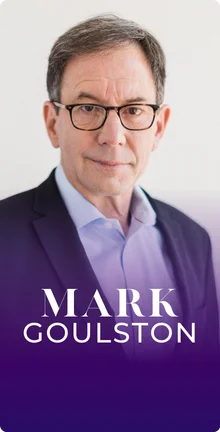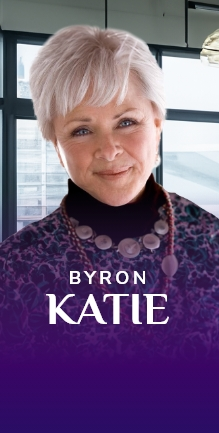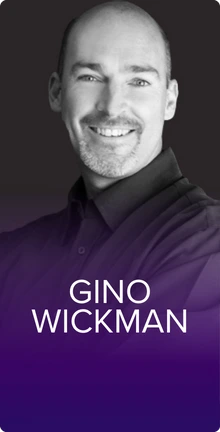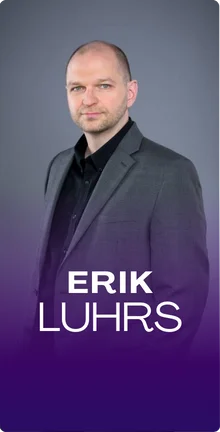In this Episode
- [00:40]Stephan introduces David Wood. He coaches high performing executives, entrepreneurs, teams, and even prison inmates, to create amazing results and deep connections, one tough conversation at a time
- [05:03]What is a Truth Audit, and how do you do it?
- [11:11]David shares an embarrassing situation he encountered, and served as a great example of facing his own truth.
- [17:02]How the 4-Step CARE Model for Tough Conversations can help you.
- [22:00]Stephan and David discuss Byron Katie’s 4th step of The Work, which is Turn it Around, and how it has been helpful to them when they’re upset.
- [28:38]What is the difference between keeping stuff secret and keeping stuff private.
- [34:15]David explains a scenario where he was coaching a prison inmate about embracing his truth and how it can influence this life.
- [43:21]David differentiates a person’s vulnerability and authenticity
- [49:30]David describes his interesting experience in working with prison inmates and the inspiration behind his involvement.
- [54:38]Visit David Wood’s website playforreal.life to download the 4-Step CARE Model for Tough Conversations blueprint, and to subscribe to Tough Conversations with David Wood.
Thank you, David, for joining us today.
My pleasure. Thanks for having me.
Your bio has ‘one tough conversation at a time.’ I would love to get your take on what is a tough conversation.
One of the things that I’m afraid of often is a tough conversation.
One tough conversation at a time. I was thinking, how did I come to be doing that and why am I talking about tough conversations all the time? I tend to lean into my fears. I didn’t make a conscious choice, looking back on my life. If I’m afraid of something, I tend to do it. One of the things that I’m afraid of often is a tough conversation. A tough conversation is any conversation that we’re avoiding and we don’t want to have. We’re not sure how the other person’s going to react, we might not even be sure how to bring it up, how to have the issue. We don’t want to rock the boat or make waves, we want them to think that we’re oversensitive. We just end up not having it. In fact, the brain doesn’t even tell us we’re not having it. The brain doesn’t even consider that we could have it.
I’m talking about things like desires that are unexpressed. I want a promotion. I’d like more pay. I’d like to work on that project. Toleration. I want something in the bedroom. Kids, I want you to not go and see your friends right now because we’re in a global pandemic and you might kill people. Lots of desires that get unexpressed.
Annoyance is another category. Tolerating someone smoking around you. Again, if my roommate is going and seeing a friend, and now I feel like that I’m at risk now of catching COVID-19, or your boss is speaking down to you and you feel dismissed, devalued, disrespected. There are so many tolerations. What we do is we tend to go and gossip. I’ll just complain to somebody else, but I want to tell you, Stephan, I don’t like how you do this. Or when you’re late for me, it bugs me and I wonder if we could do something about it.
There’s a long answer to what is a tough conversation.
Got you. Part of that is speaking your truth. Sharing what’s going on for you, what’s real for you. Do you have a process for that? How do you recommend to your clients that they address these tough conversations?
First, we have to become aware of them. I recommend the truth order because I wasn’t trained in how to recognize what’s happening in me. Or David, what are your unexpressed desires? I would have no idea. Even now, if someone asks me, what are they? Get a piece of paper and write down on the left side anybody in your life that you don’t feel great about. You can scan; ask your brain, “Who don’t I feel great about?” I start scanning through my contacts here in Boulder, my friends, my family. There’s a family member. There’s an uncle who loves to send jokes, memes, and viral crap to everybody. Every email address he’s got, it goes out. I asked him 15 years ago to stop, he didn’t do it. I managed to block him.
A tough conversation is any conversation that we’re avoiding and we don’t want to have. In fact, the brain doesn’t tell us we’re not having it. The brain doesn’t even consider that we can have it. Share on XRecently, I joined a family thread on Facebook so that I could set up a reunion call. Within minutes, he’s sending a joke to that family thread that we create for the reunion call. Someone sent an email to all of us and included me on it, and now he’s got my email. He’s very efficient. Sends me crap straight away. There’s an example of where you just might not say anything. I decided to bring it up with him, at least by email, and have that tough conversation. He said, “Okay, that’s fine.” I don’t know if he has stopped sending me stuff because I managed to find out how to block his email address on my server because I don’t trust him to do it.
When you scan your current life, you can find people up. I just don’t like him, I don’t like how she does that. Write down the names and then next to it, write down the issue. If you really want to go to town, start scanning through your past. People from high school. “Yeah, I still hate that guy. I don’t like how that person treated me. I just noticed someone today and I swore to myself, that bastard.” So many of these. Write it down, write the issue, you don’t have to have the conversations with the people. We’re just becoming aware at this stage.
When you scan your current life, you can find people who you don’t like.
I do recommend that you circle two or three that are the easier ones. Don’t start with the really hard ones, don’t start with the ones that could send you to prison for crimes you committed, or have your partner break up with you because you broke an agreement, or that you’ll get fired because you stole some money from work. Don’t start with the really big ones. Start with the easy ones, maybe not your family, and practice.
We can give people four steps to make it so much easier for you that every time you practice one of these conversations, you’re building your agency, you’re building your skills so that when the bigger ones come up, you’ll be like, all right, I got this. I’m going to bust out the worksheet, David’s Four-Step Tough Conversation blueprint. It’s called the CARE Model and I bust it out, fill in the worksheet and then I’ll decide if I’m going to have the conversation.
Or you might decide not to, but at least you’ll be clear on the issue. There’s huge value just in getting clear about what is bugging me and what is my hope.
You just bury it, it’s not addressed and it’s sitting in your subconscious, that’s not good. Brushing it under the rug doesn’t help anybody.
We don’t like tough conversations because we can’t control it and we feel vulnerable.
Yeah. Now you’re pointing to why we would want to have one of these conversations because they can feel awkward. You’re out of control. This is why it’s a tough conversation. You can’t control it, you might be worried about their feelings and your feelings. It’s vulnerable. And you might lose something.
And you might not feel like the person that you’re talking to cares about you or is going to take any effort to protect your emotional state. They might just let you have it.
That’s right. If you say to your partner, I really want some reassurance right now and to know that you feel this about me. What if they don’t? What if they can’t give you that reassurance? Actually, I’m not sure about the relationship. It’s scary.
You point to why would we want to face these tough conversations and speak our truth. I got a bunch of reasons for you. One, I was thinking about a book title. It’ll be something like Speak Your Truth and the subheading would be for integrity, intimacy, and influence. Those were three great I words. Integrity first, when you speak your truth, you get to feel good about yourself. When I don’t speak my truth, I feel a bit smaller and contracted, not like myself less. But if I speak up, I feel proud of myself that at least I said it. The other person may not give me what I want, but it’s a win for me. I wanted one to have that and I call that Integrity.
The second I is intimacy. I often feel more connected to the person after having that conversation with them. They may not agree with me and may not give me what I want, but at least, we can acknowledge, “Oh yeah, this is not a good situation, but now you know how I feel, I know how you feel.” It might not need any actions out of it. That’s it. I just had one of these three days ago with a friend. I said, “I’m so glad we talked,” because now I know she’s not out to get me. I know at least that we’ve gotten to connect. That’s the intimacy.
And then the third one is influence. You can get a lot of great stuff in the external world by speaking up, asking for what you want, for example, or asking someone to stop doing something that you don’t want. They may actually grant you that. Now you’re having influence over people and over your world and you get some external results. Those are three reasons I like, probably three or four more to do it.

That’s great. It seems like we’re all really good at making up stories, making up reasons, or making these mental leaps, jumping to conclusions. Oh, this person didn’t call me because of this and it’s actually not true at all. That woman that you spoke to had a good conversation with and turns out she’s not angry or doesn’t feel any ill will or anything towards you at all, perhaps you’d made a story up that maybe she had and now you’ve cleared that up. That’s really important.
In that case, she had told me that she was disappointed about how I’d handled something as a friend. It’s hard for me when someone is disappointed with me or upset with me. She has the ability to influence my career. There’s real worry there, but also, I just don’t like anything that could bite me on the butt, anything hanging over my shoulder.
I’ll give you an embarrassing example. This was really hard for me because it covered a social taboo and I was so embarrassed. What happened is I’m on the phone and I walk out of my balcony. I live in the mountains, overlooking a valley with no immediate neighbors. I have a tenant downstairs but she’d been away for five days. I walk out on the balcony and I need to pee. I’m thinking, I don’t want to go back inside into that dark bathroom and pee. What a glorious day. No one’s going to know. What’s the harm? I’m going to pee over the balcony onto the grass.
Midstream, I hear a door shut quite firmly downstairs and I’m horrified. I stop what I’m doing, I go and check the front, she’d arrived home in the last 15 minutes. I hadn’t known it. I’m assuming now that she was sitting out there, having a cup of tea on her downstairs patio and sees this stream of urine coming over the balcony. I’m mortified. It makes it worse that I’m a man and she’s a woman. You got the whole Me Too movement thing and there’s a power dynamic. I’m a landlord, she’s a tenant. I’m worried about getting crucified.
The counterpoint to me wanting to avoid a tough conversation was I don’t want to wait with something hanging over me.
Anyway, for four hours, I was miserable. I was upset, I couldn’t focus on anything. I didn’t want to bring it up. If she brought it up, I knew what to say, but I didn’t want to go and bring it up. And also, what if she didn’t even see it? What if she just happened to shut the door, but didn’t see it? I was in misery for four hours.
I’ll tell you what, Stephan, the counterpoint to me wanting to avoid it was I don’t want to wait with something hanging over me, wondering if anytime she’s going to bring it up or she’s feeling unsafe in her own home, is she going to move out, is she going to complain to some tribunal. I can’t stand that. I’d rather address it head-on, but it took me four hours to find the courage and I had to do my own worksheet and the four steps, which I’ll take us through and in the end. I went and I knocked on the door, I was completely vulnerable and told the truth. And I’m so glad I did. It was hard, it was horrendous, but we ended up having a laugh about it and she was very kind. Turns out she hadn’t even seen it. But she was very kind about it and I committed to not doing it again, whether she was home or not and hasn’t bothered me for one second since. That’s what I’m talking about with integrity. You can actually have some peace.
There’s a guy from summer camp that intimidated me, who’s a big boxer and a bodybuilder that a couple of guys that really big threatened me with physical harm and I hate that. It’s something I carried for a long time. I think I finally wrote him a letter because I didn’t know how to get in touch with him and I didn’t want to be on the phone. But I think I wrote a letter, I never heard anything back. I let it go as much as I can. But I’ve called a bully from high school and said, “I resented you for 20 years and I’m letting it go.” He was amazing. He said, “What can I say or do now to help you or us move forward?” Damn son.
I went back to my hometown a couple of years later, saw him at a pub, and normally, I would’ve just waved or whatever, assumed he didn’t want me. He invited me over, we had drinks for a couple of hours and then he invited everyone including me to come back to his house for drinks. I hadn’t been to his house in 30 years. One of those reasons that had hurt so much was because I really liked and admired him. He turned to me at midnight, we’re both drunk, he says to me because one of my fears in calling him was he thought I was a total jerk and idiot for calling. And he said, “I don’t think I ever would’ve had the courage to make the call that you made.” That was one of the biggest acknowledgments I’ve ever had in my life. From this guy that I’d liked and then hated. So this is a lot of upsides.
I got to say, Stephan, there’s also some downside. At the end of the episode, we’ll give you a link where you can download the 4-Step CARE Model for Tough Conversations. In the worksheet where you get clarity, it’ll ask you what’s a fear that you have. Basically, how could this go wrong? And you write it down. And then there’s a box to check. I am willing to accept these possible consequences. If you’re not willing to accept those consequences, do not have the conversation.
Be willing to accept the consequences of a tough conversation.
I’ve tracked down someone from my past and confessed to a crime. I said, “I did this. It didn’t seem a big deal at the time. As I got older, I realized it’s wrong. It’s illegal. I’m sorry.” If that person had wanted to prosecute, I could’ve gone to jail. Don’t have those conversations if you’re not willing to risk it. I checked the box. I am willing to risk jail to apologize to this person. That’s not everybody’s values.
Do the worksheet, get the clarity, and then you go, I’m willing to accept this person not talking to me again. I’m willing to accept this person being angry. I’m willing to accept this person not even listening to me because they got so much for their own charge. I’m willing. That makes it easier to go in because now you’ve got a heads up. I know what I’m afraid of, I know what my hope is, and we’re already getting into step one.
Step one in the CARE Model. C stands for Clarify. You fill in the worksheet, clarify what is my hope, what is my fear, and what is my request. You write all that down and then you check the box if you’re willing. If you’re not, okay. You did your work. You got clarity with yourself, which is having a tough conversation with yourself. But if you do go on to have it, then you can follow the next three steps which are Ask, Reveal, and Inquire.
Got you. Okay. I really like your model. It’s the stuff that we don’t face that we’re usually the most fearful of. Just facing like I had a lot of fear of death and going through the process of figuring out my will and trust, especially in these times. It makes our mortality that much more real and potentially imminent. It’s so potentially imminent if we make the wrong choice or we just touch the wrong thing if we don’t disinfect everything quite perfectly, you could get sick, and then next thing you know you could be in the hospital, and next thing you know you could be intubated.
Speaking your truth is showing integrity to yourself. It gives a sense of pride how you can freely share what you truly feel and feel good about it. Share on XYeah, you could die.
We will die. It’s just a matter of coming to terms with that and doing an update on my will and creating a trust because I have a seven-month-old baby—this is very timely for us to figure this out now—if both me and my wife died, how is he going to be looked after? Is there going to be a trust that will look after all of his needs? Who’s going to be his guardian? Etc. Figuring all that stuff out made me less fearful of death.
Nice. Beautiful segue. Tough conversations and COVID-19, it’s all about fear. That’s a common thread. There are so many things that we fear. I don’t have a problem with fear. Sometimes I like it, sometimes I don’t like it. The ego’s job (I believe) is to take care of us. It worries about things like getting a virus and dying. Oh, it’s bad. And worries about having that conversation with my boss. Worries about losing my job or if I don’t have money to pay the rent and have this nice house. I’m really attached to this house. I love it and I don’t want to leave.
We don’t always respond the best way from fear and in a tough conversation.
We’ve got this fear, but fear doesn’t usually feel very good. We don’t always respond the best way from fear and in a tough conversation, the fear is what they’re going to get. They’re not going to even hear the words; they usually hear the emotion behind it. Whatever you can do to transform and soften it. I like one thing you did is, you planned. This is what I’m going to do, get my will, whatever, line up three or four friends because some of them could die, so maybe three or four friends in a row that commit to taking care of the son, line it up. Planning is one good way.
I did an interview this morning and it was about looking at what we’re afraid of and finding ways to welcome that in. I talked about some stories of being in an armed hold-up, having my paraglide collapse and plummeting towards the ground, being in a plane and they said, “One of our engines has caught fire, but we’ve still got a working engine. We’re going to turn around and head back to the nearest airport.” I’ve had near-death experiences and I’ve managed to welcome those in surprising ways.
Just hearing you speak, I thought about Byron Katie. She has a very clever way of turning things around. You write down what you’re afraid of, I never want to lose my job, I never want to get sick and die, I never want to whatever, and then you do the work which is a process—
The Four Questions and the Turnaround.
Yeah, the Four Questions and the Turnaround.
She was a guest on this show, by the way. One of my favorite episodes.
Fantastic. Mine too.
I love her. I love her work, everything that she does. I was really excited to get her as a guest on the show. Listeners, definitely check out that episode. It’s fabulous.
Around from ‘I never want’ to ‘I look forward to.’
I love her. She’s my favorite teacher. The final step for her is, you turn it around from ‘I never want’ to ‘I look forward to.’ This is hard for me to say, I haven’t done the work on it, but I look forward to not having enough clients that I have to move out of this house. I could go and live in a tent somewhere, I could go and spend some time with my parents. Who knows? I look forward to getting sick and then healing. Or I look forward to getting sick and dying. That’s harder. It’s much harder for me.
The way I learned the Turnaround process is it’s to take a thought and test the Four Questions. Is it true? Can I know with absolute certainty it’s true? How does this thought make me feel? And what would life be like if this thought didn’t exist? And run the Four Questions through the Turnaround statement. If my thought is this person doesn’t like me, I turnaround. Or the opposite of that would be, this person actually does like me. Or another turnaround is I actually don’t like this person and you run the Four Questions on those turnarounds and then you see if those might be more true than the original statement, the thought that you found disempowering, unhelpful, negative or what have you, what’s causing you anxiety. That’s such a powerful process, I love it. I’ve used it to great impact.
That resonates with me. It’s been a lifesaver for me and whenever I’m really upset with something, I will turn to the work. But the shortest version of it is, turning around, I never want to experience this because there’s fear in that, so I look forward to it.
I’ve actually done that to myself around the COVID-19. I’ve been like, all right, if I get sick and I die, I hope those last few days are really precious, out there the best days I’ve ever had because I’m so present on my last days of a global pandemic. I’ve actually done that work for myself so that I’m not afraid of it. I’d rather it not happen, but if it happens, I’m going to milk it. I’m going to be talking to friends, I’ll be talking to old lovers. Who knows? I’ve seen movies where someone doesn’t have long to live and they make the most out of it.
The point is, there is a way to look forward to almost anything. I still got my stumbling blocks. I like torture. If I really look, I could really find it, but I’m not looking forward to it.
That wouldn’t be on my list. I just interviewed recently, Shannon Susko. She walked the listeners through a process where instead of trying to figure out where you’re going to make cuts in your marketing and other types of expenses, if you figure out what is my basement level, the very worst-case scenario, let’s say no more money comes in at all, how many days of cash do I have left? Knowing that number is freeing and then working your way up from that worst-case scenario to where you’re at now gives you the freedom to stop worrying about it and just have the contingency plans that they are ready to execute when you need them.

What’s the second worst-case scenario than no more money comes in? That would only my very best most loyal clients who are resilient to the pandemic and the economic downturn, only those folks stay with me. What revenue is associated with that? What kind of skeleton crew and minimal level of expenses would I operate the business at, with that kind of level of revenue, and then work my way up?
Okay, what if even more clients than just the most, most loyal and most resilient? What if some pretty resilient business who really love what I do and results I’ve been getting, what if they stay as well? What kind of expenses would I have then? Trying to start at the top and work your way down is very, very painful and psychologically don’t want to do it and we avoid it. Figuring out if I lose this big account, I’m going to have to make layoffs, I’m going to have to figure out what things I’m going to cut out of my different tools and all that kind of stuff. It’s very painful and something that you’ll procrastinate forever.
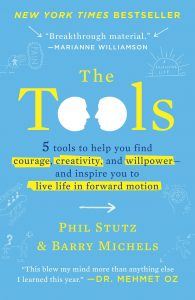
Another analogy there—this also came to my mind when you were talking—is it comes from the book, The Tools. Have you ever read The Tools?
No.
It’s a great book. There are five tools in the book. The first tool, though, is run into and through the fear. Imagine the fear as this dark cloud, but it’s a cloud that is not made of anything tangible. It’s not going to block you. It’s just like air. Just run through it. And it goes through this whole explanation, when he had this really good friend who was a star football player, he was all-state, he wasn’t the fastest, he wasn’t the strongest or anything like that. What he was, was fearless. Well, not fearless. This was a secret to success and he shared this with his friend because his friend asked him. They’re both high school students at the time. He said, “I run straight to the fear. I run straight to the guys that are going to just pummel me, they’re going to tackle me, and it’s going to hurt. Right through them. In the very first play. And then I am invincible the rest of the game.”
I like that.
This is so amazing, I can apply this to my clients. He is a therapist, a psychologist for a long time and he wanted practical tools for everybody. I would not have to dig up all their old stuff and everything, they just go right to the crux of the matter and this was one of those five tools. Just run straight to the fear, like you’re going to go get tackled and it’s going to hurt, but then you’re fearless the rest of the time.
I like that.
That’s pretty cool.
You could follow that with a tough conversation model too if you like. I suggest that you choose a couple of the easy ones and work your way up. But you can do what I did. Go for the hardest ones and then after that the other ones seem a lot easier.
There’s a difference between keeping stuff secret and keeping stuff private. If you keep something secret, it gnaws you. If you never told anybody about the incident on the balcony, it would gnaw at you. But you decide I’m going to actually share it on a podcast episode, then it’s completely freeing, it has no power over you because you’re not trying to keep it secret.
Actually, no, not quite. If I didn’t bring it up with her, it would gnaw at me. That was an issue, but I don’t have to tell anybody about that pee incident because I feel complete now and because I’m complete with her.
Got you, okay. This idea of having a distinction between private and secret is that, private, you just choose not to tell people because you want to keep information to yourself.
It’s not their business.
Right. It’s not their business. Secret is this idea of, I would be ashamed or I’d feel guilty, or there would be consequences or what have you. I’m going to have to keep this to myself. That is a mental and psychological burden.
Yeah. Particularly with the shame. When we have shame around something, we’ll keep it secret. I had shame about peeing off the balcony. I did not want to even talk to her about it. I think one way to heal shame is to be more public about it.
‘Shame is a public problem and it needs a public solution.’ – Brené Brown
Brené Brown says, “Shame is a public problem and it needs a public solution.” That’s fascinating to me. I think she’s right. I tend to talk about the things that I was hiding for many years. I will talk about my arrogance, I will talk about my severe depression and anxiety. I played a video game for 12 hours yesterday. Not proud of it. I talk about addiction, I tend to talk more and more and more about all things and as I do them, I can come more to accept them for myself. Other people would have not, that’s up to them, but I can own it for myself. Where if I stay silent and I won’t admit it to my friends, that hurts. It keeps hurting and it festers. We want to bring the light, bring sunshine to those areas.
Speaking of the light, I find that when you go into those kinds of dark areas and you decide to just air the “dirty laundry,” you can actually reveal a lot of light for others and be a beacon of light for them.
For example, it wasn’t that I was ashamed of this. It was that I didn’t think it added to my profile or whatever so I didn’t talk about it. The fact that I was a foster child for three or four years of my childhood. I just didn’t speak about it. Most people never knew that I was a foster child. Then, I decided to be public about it. In fact, I got on TV talking about the foster care system, three big lies that people tell about foster kids, and debunking those myths.
I did three or four different TV appearances about foster care. Who knows? Maybe I convinced somebody who is on the other end watching the TV appearance or maybe seeing the clip on my website that maybe I’m going to foster or maybe I’m going to talk to my foster parent that I wrote off and haven’t spoken to in three decades or something like that. Who knows what kind of impact I could have had?
We don’t always respond the best to fear. Whatever you do, have that sense of awareness that whenever something tough happens, your goal is to transform and soften it. Share on XI have a feeling that it made an impact, though, and it certainly is an important issue, one that I had never really publicly addressed, but once I decided to get over that fear and the hit to my reputation, potentially, which I don’t think is even a thing really. It’s our ego that makes up all these stories about stuff. It’s not even true, most of it.
I love that. Go ahead.
That was back in 2016. Then, I wrote a blog post about it. About being a foster kid and what people could do to help with regards to foster care. They don’t have to just foster a kid or adopt. They could donate to an organization like Together We Rise or Pajama Program. So many things they could do to help. That was awesome to go through that process.
I think that’s a beautiful example of leaning into something. The more we hide from it, the more power it has over us. There’s an expression I heard once, there was a male teacher with two female teachers and whenever he did something wrong or missed something, they just touch his arm, just very lightly, and he’d stop mid-sentence. He’d stop. He goes, “What? What did I do? What did I miss?” A friend of mine said, sharing how amazing that was. Wow, the guy is so humble. And my friend said, “Yeah. He lays down so fast, they can’t hit him.”
That’s an interesting way to put it.
Yeah. I think that expression can apply to what you’re talking about. You can hide about the foster kid thing and worry that people might judge you or you can embrace it. You can lay down with it so people can hit you with it. You can make it your own.
I was once coaching a prison inmate who was really worried about people finding out once he got out. He was worried about people finding out in his community that he’d been to jail. I said, “Dude, do you want to know I would imagine I would do it?” He said, “Yeah.” I said, “I wouldn’t want that biting me on the ass, hanging it over my shoulder for the rest of my life. I would proclaim it far and wide. I’d be doing interviews with newspapers, I’d take on some project to help address youth or whatever, and I will become my identity. Yes, I did time, and now, here is the narrative. I’m using it now to try and benefit others. Boom. Now, it’s who you are.” Whereas if someone finds out about it, how you have been working for years for the company, that’s how you create drama. Just watch Friends or any sitcom. The way you create drama and comedy is to keep a secret.

Last night, I’m watching Friends and Monica had lunch with Richard and she’s like, “Don’t tell Chandler because he will freak out.” I wanted to slap her. You idiot! If you tell him, he won’t like it, you’ll talk about it, he will probably get over it, but don’t tell him, he finds out and you hit it, now you’ve got a betrayal. I still watch it. I love the show, but it drives me bonkers. That’s how you create drama. Take your own wounds, embrace them, make them public. That’s my bias, anyway. It doesn’t work for everybody.
I love what you said, Stephan. There’s a difference between secrecy and privacy. Because I used to think I have to share everything now with the world. A friend recently said you have a right to privacy. Some things, it’s not anybody’s business.
You have the responsibility to keep your boundaries up because maybe you want to share all the stuff that some people would say this person doesn’t have filters or don’t tell them stuff because they might share that. You could say I’m going to keep what other people want private, private, to respect their boundaries and stuff that puts me out there in a vulnerable way but is maybe helpful to others, healing or gives them some sort of insight, that stuff I’ll share. I won’t hold back.
You have a right to privacy. Some things, it’s not anybody’s business.
A caveat, though, is I think people will tend to be more secretive than appropriate. I’m an evangelist for speaking 30% more of your truth than you’re currently speaking. You just don’t speak all of your truth, 30%.
I just coached an executive at a company. She was having a salary negotiation. She said, “Yeah, I think it was all good. I think my boss was visibly awkward,” and I said, “Did you name it? Did you say it?” She said, “No. I told her my experience but I didn’t say that. My boss seemed a bit awkward and checked in with her to see if she was.” I’m like, “Well, you could go to that extra level of like, ‘Hey, it seems like this might be a bit of an awkward conversation for both of us. Would that be right? Let’s just name it and get on the same page.’”
I love that. That’s like addressing the elephant that’s in the room and it takes the power away from that elephant.
Yes. Look, if I write a book on this (and I think I will), it’ll address the mouse in the room, because the elephant in the room, yes, big stuff, oh my God, I can’t believe the people aren’t even addressing something huge, but address the mice in the room, a little thing.
It feels like an elephant, but it’s actually a mouse.
It might be, “I just said something and then you pause and I’m wondering if I’ve offended you. Was it insensitive, what I said?” Boom. Be a mouse and they’re like, “Oh no, it wasn’t, but thanks for checking.” Name the subtle things and this is a lifelong practice. I only got introduced to authentic relating practices in the last year-and-a-half and I’m very excited about them because you need to reveal your experience yourself first. This is what I’m feeling. This is what I’m thinking about the person. Hey, I can check it out. I just made up a story that you might be a bit standoffish because of something I said last week and I’m kicking myself, is that true?
It seems so simple but I call it an advanced practice because most of us were not taught or even know what’s happening in ourselves, so how are we going to reveal it to somebody else?
The more we hide from our challenges, the more power they have over us. Share on XThere are so many cases where I think I wasn’t even aware that I was embarrassed by this thing and I was keeping it to myself, then I got real about it and clarified—yes, the C—then I decide I’m going to share that story and I’ve shared it a number times now. The story was how I got started with getting my first clients and back in 1995 when I was 24 years old. I talked my way into a conference as a volunteer, because I didn’t have the money to attend as a paid attendee, it was $2000, a very expensive conference and I was up to my eyeballs in student loan debt and I’d just dropped out of my Ph.D., so I don’t have the money.
I wasn’t a speaker yet. I’d never spoken on stage before, so I could get in as a speaker, so I got in as a volunteer and they gave me the job of mic runner. During Q&A, I’d bring the mic to whoever wanted to ask a question and being a cheeky 24-year-old who knew a lot and wasn’t afraid to let everybody else know that I knew a lot about the topic of internet marketing, I started chiming in because I had the mic. I started helping the speakers answer the question because I had the mic. I got a stack of business cards by the end of the day.
Here’s the embarrassing part, I was de-invited from volunteering on day two by the conference organizer. Apparently, I rubbed the speakers the wrong way by chiming in helping them answer questions. That was very embarrassing and thus I never shared for, I don’t know, 17 years, that story. Then, I decided I’m going to share it. I’ve shared it at least a dozen different times. People love it. They’re like, wow, that is so amazing because the thing that came out of that, that was so incredible was I got two big accounts that were worth, between the two of them $1 million in customer lifetime value.
For somebody who had no clients at the time, this was essentially my seed money, having two big accounts that came out of that day, because I had the gumption to get up there and start chiming in. It’s amazing and I didn’t have to go get funding from angel investors. I didn’t have to take out big loans, get a line of credit or anything because I stood up and made myself known. That’s pretty crazy.
Everyone avoids vulnerability and yet, when we see it in others it’s so attractive.
Nice. When you said people love it, that’s the weird thing about vulnerability. Everyone avoids it and yet, when we see it in others it’s so attractive. Isn’t that bizarre?
I saw a Landmark forum leader up on stage and he shared with us that he’s terrified of people. He speaks and trains for a living. At that point, I couldn’t have gotten up on stage and did what he did. It was a real turning point in my life because you can say that? It doesn’t make me think less of you. It makes me admire you.
More importantly that you get to this lesson that you can be that authentic or that vulnerable. That you are not broken because you’re also feeling the same way that that person is. You just won’t name it. You won’t admit it or share it.
Yeah. My life, I think from seeing him and others at Landmark Education probably, I got to see. I want to be that. I want to name the things. Comedians do this well in a different way. They’ll take anything about themselves that they’re upset or worried about and they’ll turn it into comedy, fat and overweight, a lot of their shtick will be about that because people are thinking anyway. I notice them smiling. I feel this leads up to this concept of let’s reveal more. I think authenticity is the new strength. Vulnerability is the new strength.
Yeah, let’s distinguish those two for our listeners because they’re often used interchangeably but they’re very different from each other, authenticity and vulnerability.
Okay, yeah. That’s good. I haven’t been asked that before, what occurs to me is that authenticity is being you, showing who you are…
Yeah, words and all.
Yeah, and that may not always feel vulnerable. I can own that I’m arrogant, I think I know the answer all the time, and I think I’m the smartest person in almost every room I walk into. That’s my default assumption. That’s not vulnerable for me to share that. Sharing that I peed off a balcony when I’ve got a tenant downstairs, that’s a bit more vulnerable because I know there’s a chance that I’m going to be judged for that. Some people will be like, that’s disgusting. That’s a bit more vulnerable.
And there’s a potential consequence there that’s not great when you are vulnerable.
Yeah and that I can’t control.
Yeah, but where you’re authentic you’re just showing your true self. You’re not wearing a mask, you’re not operating under false pretenses, so that’s how I see those two.
When I reached out to a friend recently and I said I’m feeling a bit upset by what just happened, that was slightly vulnerable from me because I’m letting him know. People aren’t generally good at receiving other people’s emotions. I’ve been training for 20 years, but still if someone’s upset with me or angry at me, that’s often a challenge. If I’ve got some charge about someone else and I’m feeling upset, I don’t feel that safe to bring it out to people because they might react. It’s vulnerable for me to say I’m a bit upset about it and then she told me she felt upset and disappointed and then we got on the phone. That was both authentic because I shared my experience, and vulnerable because I’m a bit worried about how it’s going to go.
Most of us are not taught or even know what's happening in ourselves, so how are we going to reveal it to somebody else? Share on XEvery tough conversation I think requires both, that you be authentic, show who you are. It just reminded me, this executive that was just in a pay rate negotiation, because she’s getting her boss’ job and they’re negotiating pay. One thing she shared with me was, “You know? I just felt so rushed. We had 10 minutes allocated for this discussion and I feel like I’m coming across as a jerk because trying to get to the point and whatever.” I said, “Great information. Did you name that? Did you name that mouse?” She goes, “No, I didn’t.”
Every coaching session, people tell me the real stuff. I said great, can you go and share that with the person? Now, she’s going to ask for 20 minutes for the next round of negotiations, because there’s more that she wants to talk about. There’s more that she wants to share. There’s important stuff and she doesn’t want to come across like a jerk because she’s trying to be sort of brought to the point. She may not get a yes, but she can—that’s the name of the book—Name That Mouse.
That’s good. Yeah, because I could see going into a meeting like that where you only have 10 minutes allocated if you just address that immediately and say, “This is going to sound like I’m kind of maybe even crass, but just really to the point about this, because we only have 10 minutes and I feel a little rushed by having such a short time slot, but the whole point for me of this meeting is to address my compensation. I would like to get a raise, but I also don’t want to come off as rude or crass, so I just want to let you know in advance that that’s my outcome is to get to that discussion and come to a meeting of the minds on that. I know we only have 10 minutes.” That would be an incredibly different conversation than just feeling more and more stressed and uptight as the minutes ticked away and you haven’t even addressed the compensation at all yet.
Once you know more about yourself, you have a chance now to reveal that to the other person.
Yeah. That’s why in the 4-Step CARE Model, that clarity piece, that first piece is so important because you’re revealing your experience to yourself first. What is going on? What do I hope out of this? What am I afraid of that could happen here? That’s critical. Once you know more about yourself, you have a chance now to reveal that to the other person. I realize in that example with my friend that I said I was upset by how it went, I caught myself making a mistake, because I tried to set up a Zoom call for this community, and then the message didn’t go out as I promised it would go, and I felt really dropped like a hot potato.
I was trying to settle this up and then they were like, “Aww. Look, it’s not going to happen in time. It’s not going to go from us. The message is going to go from you.” I’m like, “Wait, what?” My communication came across as negative because it was negative and I hadn’t revealed that I felt disappointed and frustrated. It was just weird. I was tainting the field and people are going to make up their own story. Had I said I want a name that I realized I feel surprised and disappointed, you had said you would do this and now you’re not, so I’m dealing with that. Now practically, here’s what I want to do going forward, but I want to let you know what’s going on over here. Whether or not you help me fix it, or don’t fix it, or whatever, I just want a name. That was an elephant, not a mouse. That was really big. I guess we want to name all the animals.
Yeah, zebras, giraffes, you name it. One thing I’m curious about—I know we’re running short on time—is you worked with prison inmates as well. Tell me a bit more about that. Why those folks and what’s been most meaningful about working with them?
I love that second question in particular. Why those folks? I think I’ve had a fascination with prison. I’ve watched prison movies and the idea of having your freedom stripped away for years is pretty scary to me. It’s not up there with torture, but it’s up there in terms of my fears. I might be leaning into that fear in a way. Also, I wanted to contribute because I see other people creating charities and doing so much good in the world, and I felt inadequate and guilty. My life’s so good. I’ve got a surplus. I want to give something. I was looking for an opportunity for that.
I wanted to contribute because I see other people creating charities and doing so much good in the world, and I felt inadequate and guilty.
When it came up, the opportunity to go and teach what I care about which is tough conversations and authentic relating to prison inmates, this is made in heaven. I get to do charity and stuff that I enjoy for charity. That’s how it came about.
Very impactful work too. You can make a real difference for people.
It’s so beautiful to sit in a room full of women inmates for example and see someone in tears as they go through some past trauma in a loving space. I mean, just hold them. It’s so beautiful. One of my most meaningful experiences was with a man in prison. One of our staffers was traumatized by his experience with this inmate. Apparently, the inmate was really challenging with him and you look afraid. Why are you afraid? Our staffer was in the bathroom shaking after being with this guy who was a war veteran and pretty damn intimidating.
I leaned into my fears. I think we started the interview with that. I leaned into my fears and I said, I wish that have been me. I wish I could be with that guy and see how I would react. I want to be tested. The next day, that guy, that inmate came and chose me for an exercise. All right. Let’s see what happens. We’re doing a role play. He’s yelling at me and screaming at me in the role play being really intense, and I started feeling love because I could see. I said to him in the role play, “Damn, I’m so sorry. Obviously, you’ve lost so many people in your life and you’re worried about me that I might die and you’re going to lose one more friend. I’m so sorry.”
He started tearing up and he ran to the bathroom so that no one would see him cry. He came back five minutes later and he said, “I apologize for running out.” I said, “This is a cry-friendly space. You do anything you want.” That was one of my most meaningful experiences. To see a guy who other people were trembling from and find a way to reach him. I wasn’t trying to. I just felt love and care. I’m like, “Oh my God, I get your world right now.” That was beautiful.
That is beautiful.
I’ll give a plug for the nonprofit, it’s called authenticrelating.org. That’s the website. They do amazing stuff going into prisons and teaching them the art of being human. We can all use it. I’m still training in the art of being human. I think it’s beautiful work. If you feel like you want to support that work. Go and donate. If you donated $5 a month, they would be thrilled because they all go in the donation. There are no grants or funding that they have yet.
Awesome. There’s another organization that I’ve heard good things about that works in prisons called Defy, defyventures.org is their website.
Yeah. I haven’t done the face-to-face training for a while, but I’ve been doing some Zoom calls with the inmates. We thought initially we wouldn’t be able to get the clearance for it, but we can. We set it up and sometimes I’ll have two prisons on the same call and we facilitate. The women go, and then the men go. I have them do breakouts on their own, then come back and share. It’s pretty damn cool, I got to say. That was before COVID-19, now with COVID-19, that’s all that’s possible.
Right. For prisons where they weren’t that amenable to it, but they were amenable to in-person training, now they would be much more open to Zoom-based presentations.
Yeah. It’s not that hard. Normally when you do Zoom, everyone’s got their own computer. This is a little bit weird. Each room has its own computer. There are ways to do it. I love technology. This is so cool. Look at what we can do.
Amazing.
I do need to go. Should we give people the download?
Yes. Let’s do that. Let’s give the URL and just again, recap what the CARE acronym stands for so that’s what they’re going to get, the 4-step process as the download.
The website is called The Four-Step Blueprint and the CARE model stands for Clarify the issue with yourself first using the worksheet. Ask permission to have the conversation. The download will give you an amazing formula. It’s very powerful, very simple, it makes it easy to bring it up. R stands for reveal and request. Reveal the issue. This is how I’m feeling. This is what’s going on, and here’s my request, if you have one. E is so important, enquire. Now that you’ve shared all this, they might have a lot of reactions to it. Give them a chance to talk about it. How is it for you to hear this from me? What are your thoughts and feelings, and do you have a better idea than the one I have? Let’s work it out together. I want to hear anything you’ve got to say. I’m going to shut up and listen.
What’s the website? What’s the URL?
playforreal.life. It’s not a .com, I got the .life because I can. There are free invites I have there. Download the blueprint, you can’t miss it. Subscribe to Tough Conversations with David Wood if you’d like to hear some of my podcast episodes as well as the amazing Stephan. I’d love to have you on that podcast, listeners.
The third thing is if you’re interested in coaching to up-level your life and your business—I don’t work on one or the other, I like how the two intertwine—request a discovery session with me. If you qualify for that, I don’t charge for it because it’s how I find the right people to work with long-term. If it turns out it’s a one-off session, you got a plan, and you want to implement it on your own, go for it. I hope you let me know how it goes. All three of those things are in the same URL, playforreal.life.
Thank you so much. This was really fabulous. You were so giving, generous, vulnerable, authentic, and real, and I really appreciate that. Thank you, David.
My pleasure. Thank you, Stephan. I’ve enjoyed it. Say hi to Orion for me.
Yes. She loved having you on her show. Listeners, also check out David Wood’s episode on Stellar Life podcast. It’s a good one too there. Thank you and we’ll catch you on the next episode of Get Yourself Optimized. I’m your host, Stephan Spencer, signing off.






